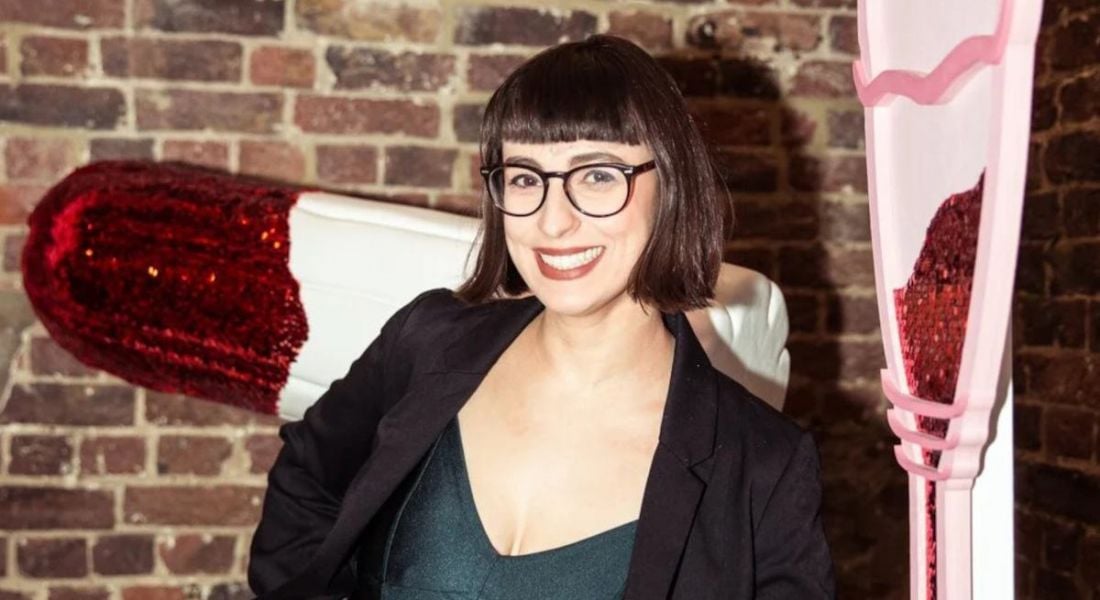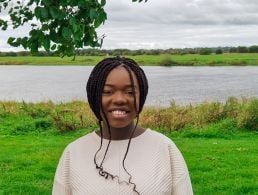Florence Schechter, founding director of the Vagina Museum, talks about her passion for science communication and destigmatizing taboo topics.
When she found out there was a penis museum but no equivalent for the vagina, Florence Schechter was spurred into action.
For those interested, the Icelandic Phallological Museum contains a collection of more than 215 penises and penile parts belonging to almost all the land and sea mammals that can be found in the country.
And since 2017, the UK has its own Vagina Museum, thanks to founding director Schechter. On its website, the museum is described as “the first bricks-and-mortar museum dedicated to the gynaecological anatomy”.
‘I’m a queer woman, so, obviously, vaginas have always been a passion of mine’
– FLORENCE SCHECHTER
Schechter has made it her life’s goal not only to destigmatize but also to celebrate vaginas and vulvas – parts of the body which, for so long, have carried stigma and shame. Indeed, many are still uncomfortable talking about these body parts, which is a big part of why Schechter continues her science communication activism.
But in truth, if anyone was to set up a vagina museum, it would be Schechter – a queer woman who has a degree in biochemistry and a love for art.
“I’m a queer woman, so, obviously, vaginas have always been a passion of mine,” she said. She found that the museum was a “natural step” for her given her interests in topics ranging from the vagina’s representation on stage, screen and the canvas, to the science of sexual reproduction among mammals.
She has given talks all over the world on period poverty in Zambia; on masturbation in Vienna; on the history of vulvas in the UK; and even our apparent obsession with gay penguins.
Even before she founded the Vagina Museum, Schechter already had a considerable career built for herself in science communication. She created a science YouTube channel and interned on the BBC show QI.
An award-winning science communicator and accomplished public speaker and writer, she is fully aware of the power of media and conversation to destigmatize taboo topics like menstruation and sexual health.
A scan of the Vagina Museum’s Instagram profile shows drawings of vulvas to normalise different sizes and shapes, as well as slightly wackier things like facts about bats’ menstrual cycles.
Schechter even has a book coming out in 2023 called ‘V: An empowering celebration of the vulva and vagina’, published by Penguin and illustrated by London artist Nadia Akingbule.
For Schechter, her work is all about representation. “For the Vagina Museum, our reason for existing is to destigmatize the gynaecological anatomy and a big part of why it’s so stigmatized because it’s hidden from view. And so the antidote to it, a lot of the time, is representation.”
As a queer person, Schechter is also keen to use her platform for intersectional advocacy and is a self-described “intersectional feminist”. That means she doesn’t believe you have to be a woman to have a vagina.
This value underpins “absolutely everything” she does and the museum does. That’s not to say Schechter is precious about language when referring to anatomy; she said she prefers not to correct people who mistakenly call the vulva the vagina, for example.
“It’s context dependent for the correction thing,” she explained, adding that she is loathe to dissuade people from talking about sex and vaginas by correcting them or embarrassing them.
Instead, she models the correct language, finding that people naturally pick it up. “I don’t ever correct people because I don’t think that I know more than anyone else. Science communicators can often fall into a trap of, ‘Well, I’m a scientist, I’m a science communicator, therefore I know more.’ And then it comes off like, ‘I’m better than you.’ But actually, we’re all equals.
“And often when we’re communicating a piece of science to someone, we forget that the person we’re talking to might know loads more about something else. We’re all just equals and it’s all about exchanges. It’s not about me bestowing upon you information.”
‘I knew that I didn’t want to become like a bench scientist or anything. I found it quite boring, to be honest. One of the things that really attracted me to science communication was that I get to learn new things every day’
– FLORENCE SCHECHTER
So, how do people typically react when she discusses vaginas? They are nearly always “overwhelmingly positive, like, much more than I expected, to be honest,” Schechter said.
“I think as soon as I start talking about it they get it … because a lot of it comes down to health. Because when this part of the body is stigmatized, it’s really difficult for people to go to the doctor when they have symptoms or to seek medical help when they need it or to ask questions when they’re worried about something.
“And so when I tell people like, did you know for instance there’s all these stats about how many people don’t go to their cervical screens because they’re too embarrassed? It instantly makes sense to people, so I haven’t had to do as much convincing as I thought I would.”
Any negative feedback the museum gets comes from online trolls, for the most part.
Like most science communicators, Schechter is in it for the love of science and what she does. Unlike a lot of scientists, she’s a natural performer and public speaker.
She is taking her unique brand of science communication to Ireland on 7 December when she will deliver the keynote speech at Sci:Com 2022. The festival is a celebration of all things science communication-related and takes place at Dublin’s Aviva Stadium.
“I knew that I didn’t want to become like a bench scientist or anything. I found it quite boring, to be honest, doing the same thing every day,” Schechter explained.
“One of the things that really attracted me to science communication was that I get to learn new things every day. I like to talk about different things every day. I also get to combine my love of performing and theatre and comedy as well.”
10 things you need to know direct to your inbox every weekday. Sign up for the Daily Brief, Silicon Republic’s digest of essential sci-tech news.




